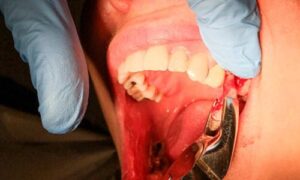Introduction
Dental fear is a common phenomenon that affects a significant portion of the population. The fear of going to the dentist can stem from various sources, such as past negative experiences, fear of pain, or simply the anticipation of the unknown. However, avoiding dental care due to anxiety can lead to serious oral health issues in the long run. The good news is that you can employ several effective strategies to overcome your fear of the dentist and ensure your oral health doesn’t suffer. In this article, we’ll explore five key things you need to know to conquer your dental anxiety.
bout 36% of people in the U.S. have a fear of dental treatment, with 12% having an extreme fear.
Understand the Source of Your Anxiety
The first step in overcoming dental fear is to identify and understand the source of your anxiety. For many individuals, dental anxiety is rooted in past negative experiences. Maybe you had a painful dental procedure or felt a lack of control during a dental appointment. Understanding these triggers can help you communicate your concerns effectively with your dentist.
Take time to reflect on your fears and jot down the reasons that make you anxious about visiting the dentist. Are you afraid of the pain? Is it the sound of dental instruments? Or is it a feeling of vulnerability? Once you pinpoint the causes, you can discuss them with your dentist, who can tailor their approach to help ease your anxiety.
Communicate with Your Dentist
Open and honest communication with your dentist is crucial in overcoming dental anxiety. A good dentist will listen to your concerns, take your feelings seriously, and work with you to create a comfortable visit environment. Before your appointment, schedule a consultation with your dentist to discuss your fears. This conversation can help you and your dentist understand your triggers and develop strategies to manage them.
During the consultation, ask about the procedures you’re scheduled for, the expected level of discomfort, and any available pain management techniques. A clear understanding of what to expect can alleviate some of your fears. Also, establish a signal with your dentist indicating you need a break or feel uncomfortable during the procedure. This simple gesture can give you a sense of control throughout the appointment.
Gradual Exposure and Desensitization
Consider a gradual exposure and desensitization approach if your dental anxiety is severe. This involves gradually exposing yourself to dental environments and procedures in a controlled and comfortable manner. Start by visiting the dental office without any methods planned. This can help you become familiar with the setting and the staff without the pressure of impending treatment.
Once comfortable with the office environment, schedule shorter appointments for simple procedures like teeth cleanings or examinations. As you become accustomed to these less invasive procedures, you can gradually progress to more complex treatments. This step-by-step approach can significantly reduce your anxiety and help you regain confidence in dental visits.
Practice Relaxation Techniques
Incorporating relaxation techniques into your dental anxiety management can make a difference. Techniques like deep breathing, progressive muscle relaxation, and mindfulness meditation can help calm your nerves and reduce stress before and during dental appointments.
Before your appointment, find a quiet space to practice deep breathing exercises. Inhale deeply for a count of four, hold for four counts, and exhale for four. This technique can help regulate your breathing and lower your heart rate, providing a sense of calm.
You can use visualization techniques during the appointment to transport your mind to a peaceful place. Imagine yourself on a beach or in a serene natural setting. This mental escape can distract you from the procedure and reduce anxiety. Many dental offices also offer distractions such as music, TV shows, or movies to help divert your attention during treatments.
Seek Professional Support
If your dental anxiety is deeply rooted and significantly impacting your oral health, seeking professional support is valuable. Therapists specializing in cognitive-behavioral therapy (CBT) can help you address your fears and develop coping strategies. CBT focuses on changing negative thought patterns and behaviors, helping you reframe your perspective on dental visits.
Sometimes, your dentist may collaborate with a therapist to provide you with a comprehensive approach to overcoming your dental anxiety. This collaborative effort ensures that your anxiety’s emotional and physical aspects are addressed.
Conclusion
Dental anxiety is a legitimate concern but should not prevent you from receiving the necessary oral care. You can effectively overcome your fear of the dentist by understanding the source of your anxiety, communicating with your dentist, gradually exposing yourself to dental procedures, practicing relaxation techniques, and seeking professional support when needed. Remember that you have the power to take control of your anxiety and prioritize your oral health. With the right strategies and help, you can conquer dental fears and pave the way for a healthier, happier smile.
FAQs
How common is dental fear?
Dental fear is widespread, affecting a significant portion of the population. It’s okay to feel nervous, but strategies exist to overcome it.
Can dental procedures be painless?
Yes, advancements in dental technology have made many procedures virtually painless. Dentists also offer various pain management options to ensure your comfort.
What if I can’t afford sedation dentistry?
Sedation dentistry can be beneficial, but if it’s not an option, communicate with your dentist about your anxiety. They can adjust their approach to make you more comfortable.
Is dental anxiety the same as a dental phobia?
While they’re related, dental anxiety and phobia are different. Phobia involves an extreme, irrational fear that can lead to avoiding dental care altogether.
Can I bring someone with me to the appointment?
Absolutely! Bringing a trusted friend or family member can provide emotional support and make you feel more at ease.
How do I find a dentist who specializes in treating anxious patients?
You can search online for dentists who advertise themselves as catering to anxious patients. Reading reviews and asking for recommendations can also help you find the right fit.














